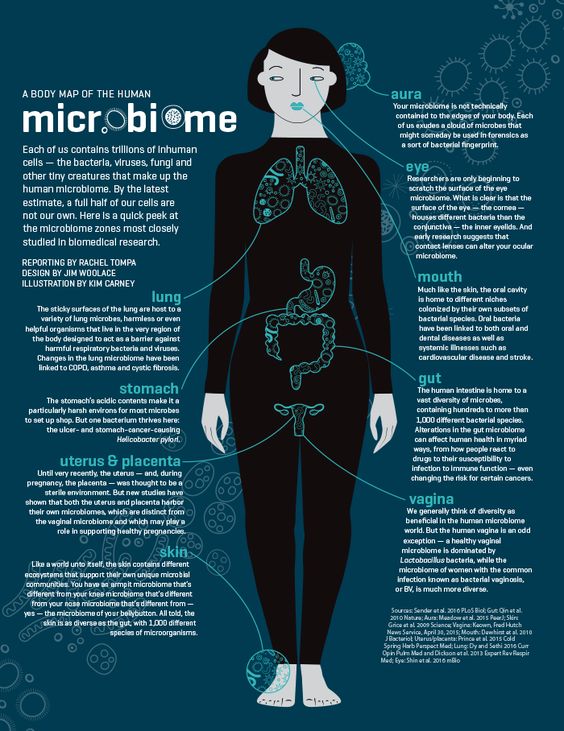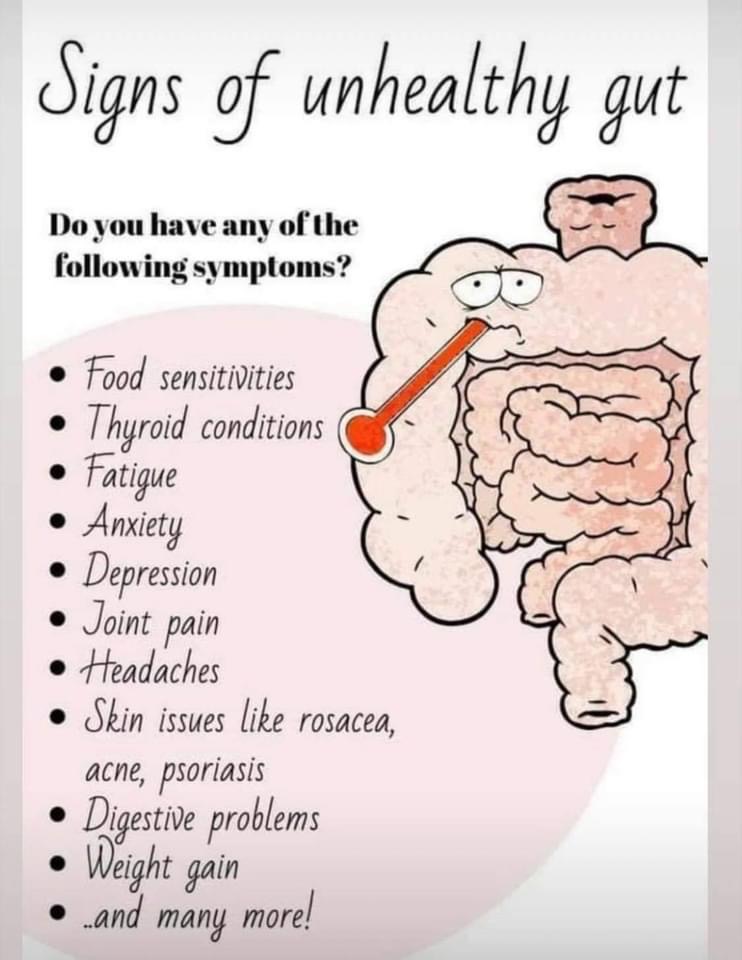“When I say it all starts in your gut, I mean almost everything!” says Vincent Pedre, MD, in Happy Gut. “Headaches, migraines, allergies, autoimmunity, weight gain, acne, skin rashes, yeast infections, hormonal imbalances, fatigue, immune challenges, even the way you sense pain—they all relate to the condition and health of your gut.”
With this concept in mind, could the secret answer to healing all of the symptoms lead back to healing the gut?
I am no doctor or medical professional, what i am is a soccer mama that has dealt with an unhealthy gut microbiome for the last 30 or so years. Frequent trips to the doctor as a kid for digestive issues, hormonal issues for many years, thyroid issues, anxiety and depression, and the list goes on and on.
In a search for a healthier way of life, I want to share with you some things that I have learned about the gut.
So What Exactly is the Gut?
Scientifically is it the gastrointestinal system, also referred to as the gastrointestinal tract, digestive system, digestive tract, or gut, is a group of organs that includes the mouth, esophagus, stomach, pancreas, liver, gallbladder, small intestine, colon, and rectum.
The gut contains millions of bacteria. You have both good and bad bacteria within the gut. As long as the good guys are winning, all is well, but when the bad bacteria starts to take over as bad things love to do, this creates major issues for you. Those symptoms begin to manifest all throughout the body with other diseases and illnesses.
When the bacteria becomes imbalanced within the gut, this is known as dysbiosis. Dysbiosis is commonly associated with GI related conditions such as SIBO, Crohn’s, Ulcerative Colitis and more. Though dysbiosis is not only associated with the gut microbiome, it can also affect the other microbiomes of the body, including the skin, mouth and nose. You can see these are serious issues.

What Causes the Unhealthy Gut
Studies have shown that exposure to disinfectants, household cleaners and other chemicals, specifically at young ages can lead to an increased risk of dysbiosis. Method of birth has also been identified as a predisposing factor in dysbiosis risk. Those born by c-section instead of being vaginally birthed present higher risk for dysbiosis and conditions associated with dysbiosis.
Lifestyle including diet also plays a big role in the unhealthy gut. Many areas of today’s life such as high stress levels, too little sleep, eating processed and high-sugar foods, and taking antibiotics can all damage our gut microbiome.
While society is pushing the high strung, high stress lifestyle, it could be affecting your gut health and thus leading to many more health problems in the future.
7 Signs of an Unhealthy Gut
With over 90 % of Americans having an unhealthy gut microbiome, I want to share with you some common signs that your gut health may be in trouble.
- Digestive Issues: Each year 62 million Americans are diagnosed with a digestive disorder. Digestive disorders include bloating, diarrhea, constipation, heartburn, acid reflux aka GERD, indigestion, and irritable bowel syndrome are just a few that you may experience.
- High Sugar Diet: A diet full of processed foods and added sugars can decrease the good bacteria in the gut leading to problems. One of the most common problems is inflammation in the body. Increased inflammation is the precursor to many diseases such as cancer. Grab the Guide to Freedom from Sugar
- Unintentional Weight Gain: Many times when the weight begins to creep on you, the culprit may be an unhealthy gut. Leaky gut is one of the biggest gut health issues and can hinder the body’s ability to absorb necessary nutrients that are needed to fuel your metabolism, regulate blood sugar levels, and store fat.
- Sleep disturbances or constant fatigue: An unhealthy gut may contribute to sleep issues such as insomnia or poor sleep, and therefore lead to chronic fatigue. The majority of the body’s serotonin, a hormone that affects mood and sleep, is produced in the gut. So gut damage can impair your ability to sleep well.
- Skin irritations such as eczema and acne: Skin conditions such as eczema and acne could be from the leaky gut. The gut is leaking out toxins that are causing irritation in the skin.
- Autoimmune disorders: Because an unhealthy gut can impact the immune system, Autoimmune disorders such as Celiac Disease, Crohn’s Disease, Ulcerative Colitis, and others could be linked back to an unhealthy gut. It’s thought that an unhealthy gut may increase systemic inflammation and alter the proper functioning of the immune system.
- Food Intolerances: Food intolerances are a result of the gut having a difficult time digesting certain foods. This is one of the last signs that I was dealing with an unhealthy gut when I had a food sensitivity test done and found I had 19 food sensitivities.

Best Gut Health Foods
Diet is so important when it comes to maintaining a healthy gut biome. You want to make sure you include the following foods as part of your daily diet.
- Anti-inflammatory foods: Increase anti-inflammatory foods including wild-caught fish and non-starchy vegetables like spinach and green beans to normalize inflammation levels and heal your gut.
- Foods rich in antioxidants: Oxidative stress, when damaging free radicals overpower your body’s antioxidant defenses, can damage the gut and lead to numerous diseases. Dietary polyphenols in colorful plant foods like berries can improve that antioxidant balance to prevent diseases such as cancer and cardiovascular disease while supporting gut health. (I use a supplement that contains Xanthohumol that according to Biomed central Xanthohumol, a flavonoid from the hops plant (Humulus lupulus), has antioxidant and anti-inflammatory properties and may act as a prebiotic to the intestinal microbiota.)
- Foods high in fiber: High-fiber foods such as legumes, beans, peas, oats, bananas, berries, asparagus, and leeks have shown a positive impact on gut health .
- Rich in fermented and cultured foods: Fermented foods such as kimchi, sauerkraut, yogurt, tempeh, miso, and kefir are great dietary sources of probiotics. While the quality of these foods may vary, their benefits on the gut microbiome are well studied.
Best Ways to Balance an Unhealthy Gut
There are some natural ways to balance an unhealthy gut are:
- Diet: I have already discussed that most American’s diets are short on fiber and nutrients. Change your diet to include the foods listed above.
- Sleep: Ensure that you are getting the recommended amount of sleep for your age.
- Stress Reduction ie exercise, meditation, prayer
- Supplements: There are many different supplements on the market for gut health.
While there are hundreds of Gut Health Supplements on the market. I am going to share with you what I consider one of the best Gut health supplements available. It is a 3 step gut health system that contains Nucleotide (building block for RNA/DNA), a butyrate that aids in gut health healing, and Hapihumol which includes the Xanthohumol, Cucermic, and more magic ingredients.
Watch this short video explaining how implementing the use of this simple 3 step system can not only change your gut but change your life.
In the few months that I have been using this simple, affordable system, I have lost around 10 pounds, experienced a decrease in digestive problems, better sleep, energy, and appetite suppression.
I am not alone though, there are thousands of people experiencing gut health transformations.
Check out the Gut Health Triad
Assume all links on this website to third party products and/or services are affiliate links. This means that if you click these links and decide to purchase products or services from the third party, I may earn a commission at no additional cost to you. Please only use the affiliate links if I have provided value to you. Otherwise, just use a search engine to find the products and/or services that you’re interested in buying and purchase directly from the vendor. I do not wish to be compensated with affiliate commissions in any situation where value was not provided. By clicking any link on this site you expressly agree that I provided value to you and that you wish for me to earn an affiliate commission in exchange.
FDA Disclaimer:This product is not for use by or sale to persons under the age of 18. This product should be used only as directed on the label. It should not be used if you are pregnant or nursing. Consult with a physician before use if you have a serious medical condition or use prescription medications. A Doctor’s advice should be sought before using this and any supplemental dietary product. All trademarks and copyrights are property of their respective owners and are not affiliated with nor do they endorse this product. These statements have not been evaluated by the FDA. This product is not intended to diagnose, treat, cure or prevent any disease. Individual weight loss results will vary. By using this site, you agree to follow the Privacy Policy and all Terms & Conditions printed on this site. Void Where Prohibited by Law.

